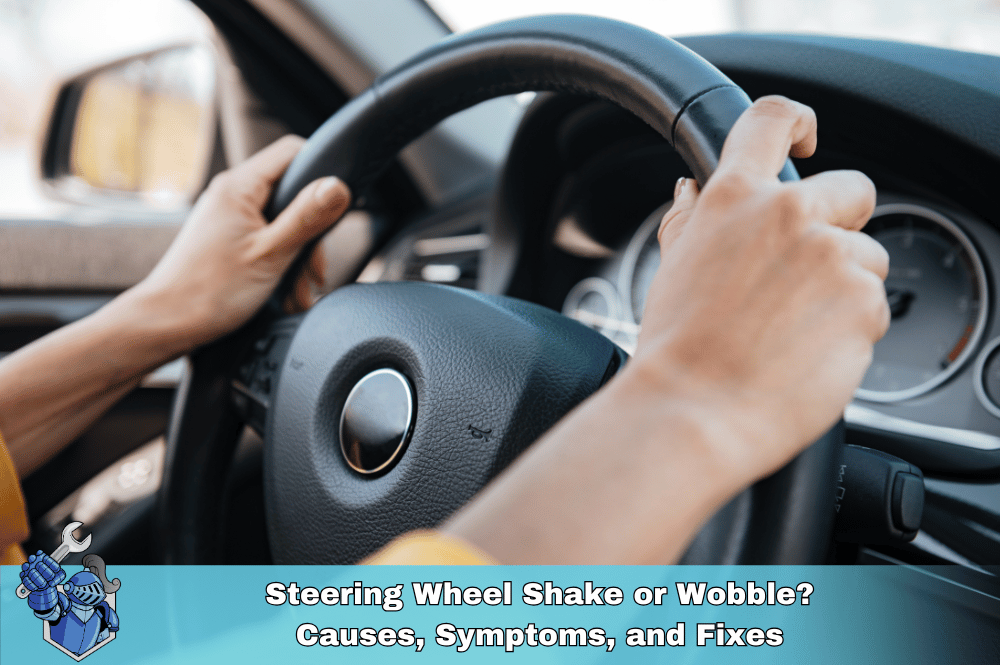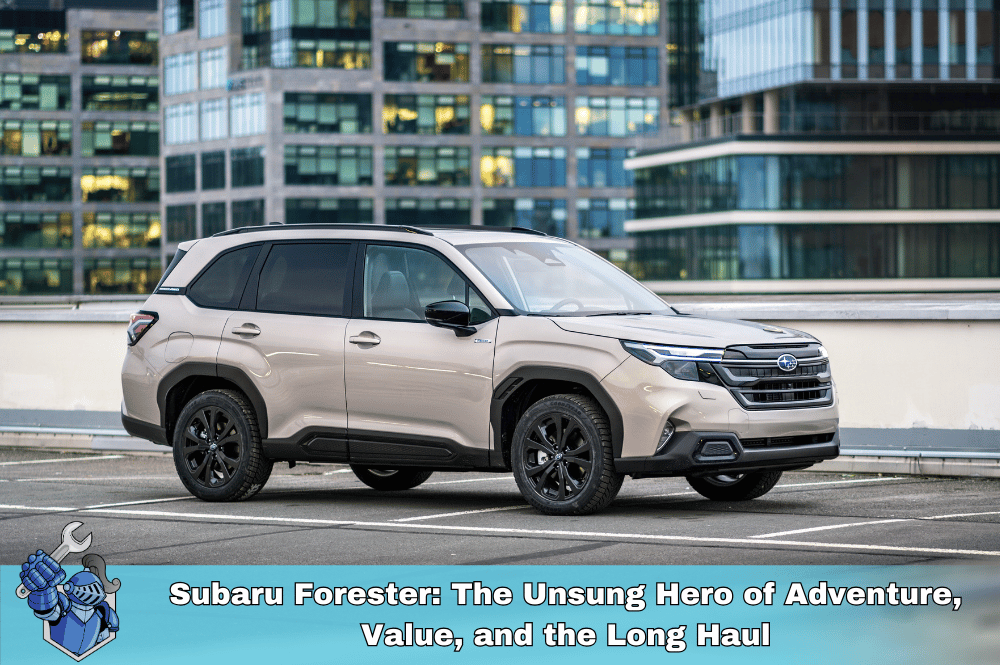The amount of practice varies, but most new drivers need at least 30-50 hours of supervised driving practice before they're ready for the test. Focus on mastering basic maneuvers and gaining confidence in different driving conditions.
Getting your driver’s license is a major milestone. Whether you’re a teenager fresh out of driving school or an adult learning to drive later in life, stepping behind the wheel for the first time can be both exciting and nerve-wracking. However, with the right preparation, you can hit the road with confidence and ease. In this guide, we’ll cover essential tips for new drivers, offer advice for overcoming common challenges, and share everything you need to know to make your journey as a first-time driver successful.
Learning to Drive: Building the Foundation
For many, learning to drive begins with a learner’s permit, but the real education happens once you’re on the road. Your driving experience will grow through practice, patience, and attention to the details that come with everyday driving. Here are some essential driving tips to keep in mind:
Know the Basics Before Starting the Engine
Familiarize yourself with the car's controls, such as adjusting mirrors, seatbelts, lights, wipers, and knowing how to use indicators. Before pulling off, take a minute to ensure you’re comfortable and know the location of important features like the emergency brake and hazard lights.
Start Slow and Steady
Don’t rush into heavy traffic or challenging situations until you feel more comfortable driving. Start in less populated areas like quiet neighborhoods or empty parking lots. This allows you to get used to handling the car without the added pressure of busy roads.
Follow Speed Limits and Road Signs
While this seems obvious, one of the most common mistakes new drivers make is failing to observe speed limits. Learn to identify road signs quickly and obey them at all times. Consistent speed and adherence to road rules are the foundations of safe driving for beginners.
Stay Aware of Your Surroundings
Always keep an eye on the traffic ahead, behind, and beside you. Proper mirror usage is vital for maintaining situational awareness. Avoid distractions like mobile phones, loud music, or intense conversations with passengers, especially in your early days behind the wheel.
Understand the Importance of Defensive Driving
Defensive driving is a critical skill for staying safe on the road. This means anticipating potential hazards, keeping a safe distance from other vehicles, and being prepared for the unexpected. Learning this approach will greatly reduce your chances of accidents and is a key part of any comprehensive beginner driver's guide.
Overcoming the Fear of Driving
It’s normal to feel anxious when you first start driving. Overcoming the fear of driving is essential for building confidence. Here are some steps to help you push past that initial worry:
Take Small Steps
If you're feeling overwhelmed, take gradual steps. Begin with short drives during quieter times of the day and gradually increase the complexity of your trips. As you gain confidence, you'll be ready to tackle more challenging driving situations.
Practice Relaxation Techniques
Deep breathing and staying focused on the road can help calm your nerves. It's crucial to keep your stress levels in check, as stress can lead to poor decision-making and mistakes. Consider practicing mindfulness or simple breathing exercises before and during driving sessions.
Gain Experience with a Trusted Mentor
Having an experienced driver as a passenger can be incredibly helpful. They can offer guidance and reassurance during your practice sessions. This type of support is invaluable, especially if you're driving for the first time on unfamiliar roads or in difficult conditions.
Common Mistakes New Drivers Make (and How to Avoid Them)
Being aware of the common mistakes new drivers make can help you avoid falling into these traps:
- Not Using Turn Signals: Signaling before turning or changing lanes is vital for safety. Always use your indicators to let other drivers know your intentions.
- Following Too Closely: Keep a safe distance between your car and the vehicle in front of you. This ensures you have enough time to react if the car ahead brakes suddenly.
- Overconfidence in Poor Conditions: Rain, fog, or snow requires extra caution. Many new drivers fail to adjust their speed and following distance when weather conditions are bad. Slow down, increase the distance between you and other vehicles, and always keep your headlights on in low-visibility conditions.
Preparing for Your Driving Test
For those who haven't yet passed their driving test, preparation is key to success. Here are some practical tips for preparing for your driving test:
Take Practice Tests
Many states offer practice driving tests online. These allow you to become familiar with the format and types of questions asked. Repeated practice will boost your confidence for the written portion of the exam.
Get Plenty of On-Road Practice
Make sure to practice driving in a variety of conditions and locations, from city streets to highways. The more diverse your experience, the better prepared you’ll be for your driving test.
Review the DMV Handbook
Each state has its own set of rules and regulations. Reviewing your DMV handbook thoroughly ensures you're up to speed on all local laws and guidelines that will be part of your test.
What to Do After Getting Your License
Congratulations! You’ve passed your driving test, but what now? The real learning starts once you become a licensed driver. Here’s what to do after getting your license:
Stay Insured and Protected
One of the first things to do after getting your license is to make sure your car is properly insured and protected. Extended warranty coverage, like that offered by Noble Quote Warranty, can provide peace of mind. Noble Quote’s coverage ensures that if your vehicle breaks down, you'll be covered for repairs, avoiding costly out-of-pocket expenses.
Keep Practicing
Having your license doesn’t mean the learning stops. Keep driving as much as possible to gain experience in different environments. Practice parking, merging, and other essential skills frequently to build muscle memory and improve your overall driving ability.
Develop Good Habits Early
Establishing positive driving habits early on will help keep you safe. These habits include staying calm in stressful situations, always wearing your seatbelt, checking your mirrors regularly, and avoiding distractions like texting while driving.
Protecting Your Car as a New Driver
New drivers, especially those with used cars, should strongly consider protecting their investment with an extended warranty from Noble Quote. Driving comes with risks, and even the most experienced drivers encounter unexpected car troubles. Noble Quote Auto Protection can help you avoid the high costs associated with vehicle repairs, offering a range of coverage plans that fit your budget and driving needs. Get a Noble Quote Warranty today and drive with peace of mind knowing your vehicle is covered from unexpected breakdowns.
For more information on our coverage plans, visit our Learning Center to explore our options and find the best plan for you.
New Driver FAQs: Your Top Questions Answered
How much practice do I need before I'm ready to take my driving test?
What are some common mistakes new drivers make?
Common mistakes include not checking blind spots, failing to yield right-of-way, following too closely, and speeding. Being aware of these mistakes can help you avoid them.
How can I overcome my fear of driving?
Start with short drives in low-traffic areas and gradually increase your driving time and complexity. Consider professional driving lessons or practicing with a calm, experienced driver. Remember, everyone feels nervous at first!
What should I do if I get pulled over by the police?
Remain calm, pull over safely, and keep your hands visible. Be polite and cooperative with the officer. Provide your license, registration, and insurance information when requested.
What are the rules for driving on highways?
Highway driving requires extra caution. Maintain a safe following distance, use turn signals well in advance, and avoid distractions. Be aware of speed limits and merge carefully.
How can I save money on car insurance as a new driver?
Shop around for quotes, consider a higher deductible, take a defensive driving course, and maintain a good driving record. Some insurers offer discounts for students with good grades.
What should I keep in my car in case of an emergency?
A basic emergency kit should include a first-aid kit, jumper cables, a flashlight, a tire pressure gauge, and a basic tool kit. Consider adding water, non-perishable snacks, and a blanket for cold weather.
Suggestions for you
Read MoreLet’s work together
Every week we showcase three charitable organizations that our donations are sent to. Our clients are able to choose which of these three will receive their gift when they add coverage to their vehicle...

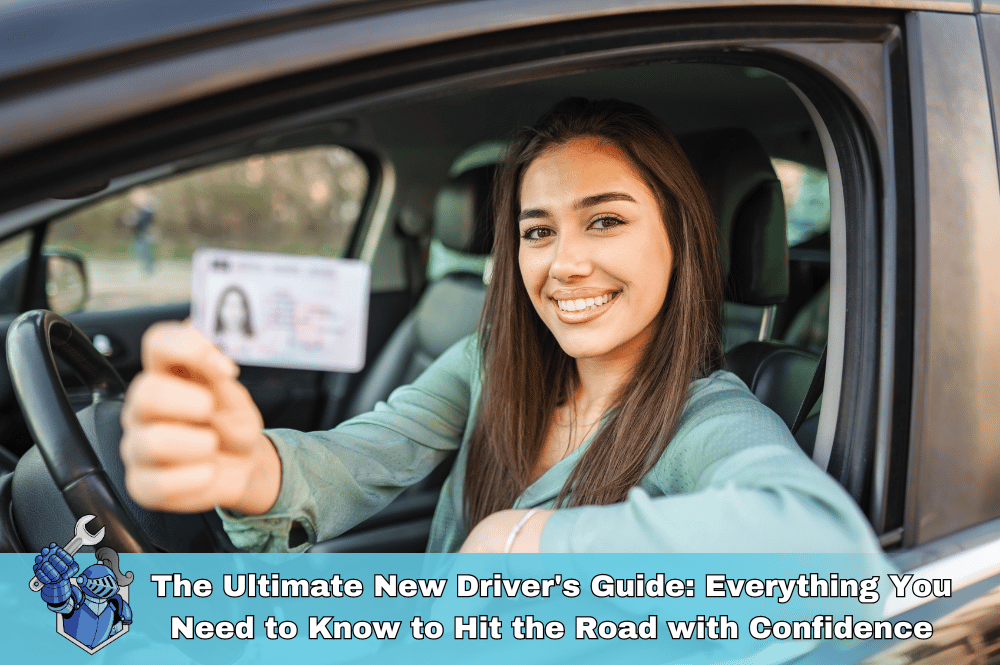
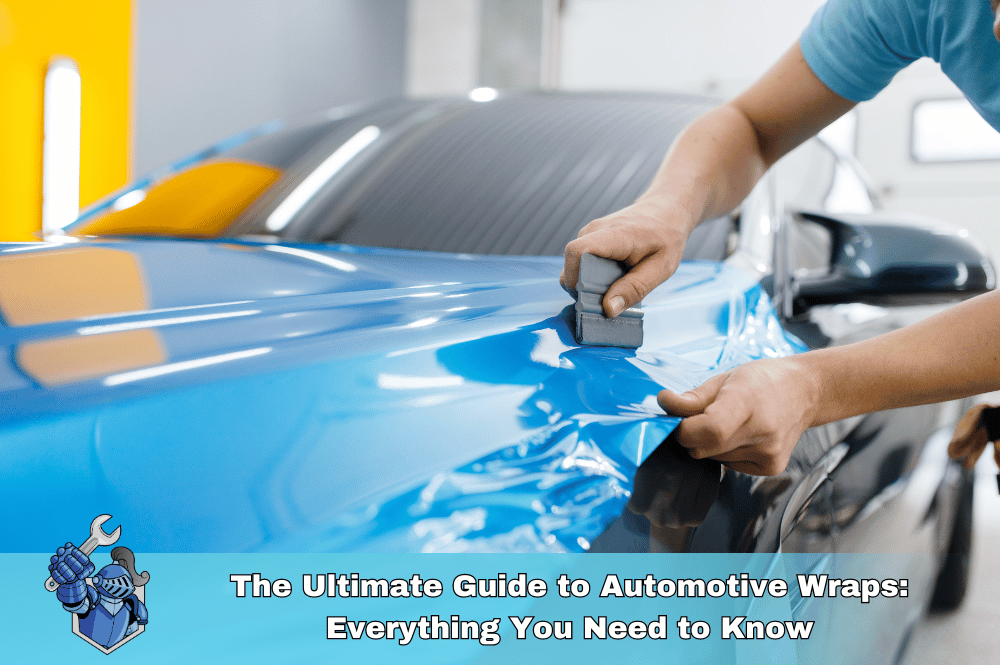 The Ultimate Guide to Automotive Wraps: Everything You Need to Know
The Ultimate Guide to Automotive Wraps: Everything You Need to Know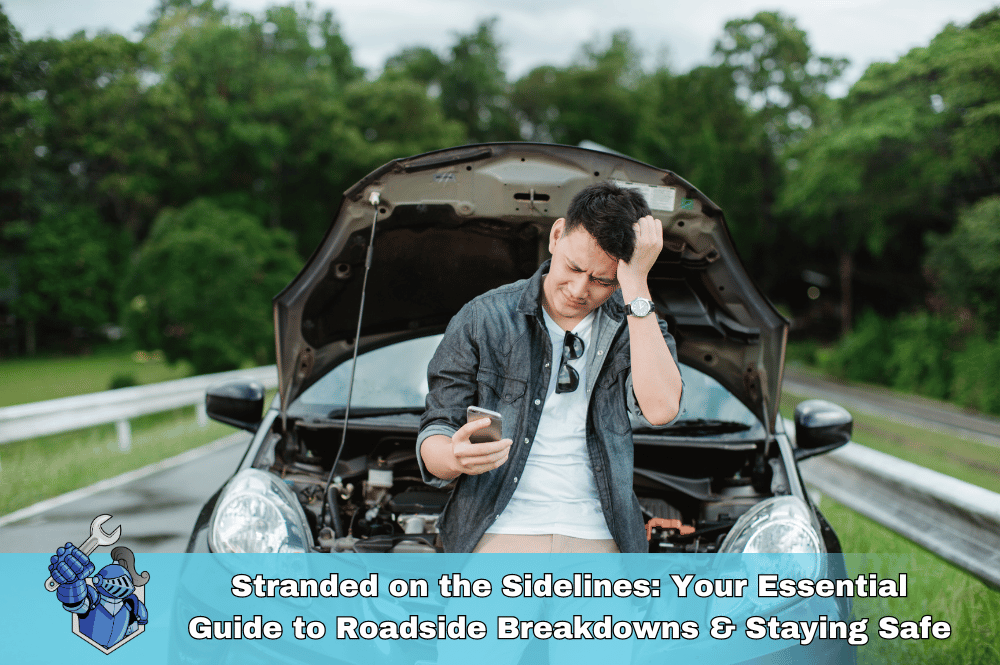 Stranded on the Sidelines: Your Essential Guide to Roadside Breakdowns & Staying Safe
Stranded on the Sidelines: Your Essential Guide to Roadside Breakdowns & Staying Safe How to Choose the Best First Car for Your Teen in 2024: A Parent's Guide
How to Choose the Best First Car for Your Teen in 2024: A Parent's Guide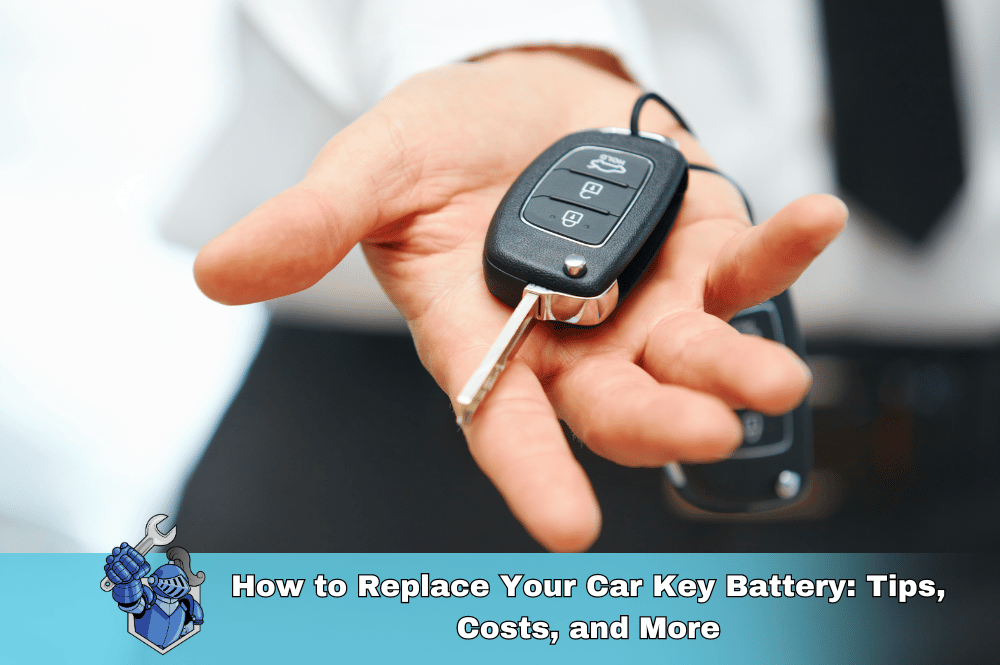 How to Replace Your Car Key Battery Tips Costs and More
How to Replace Your Car Key Battery Tips Costs and More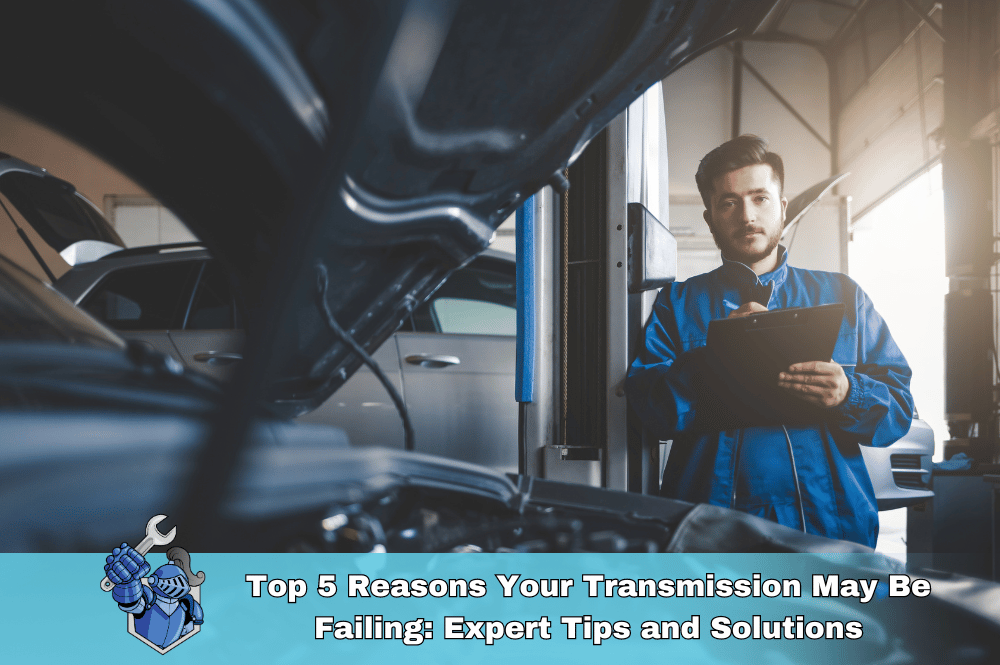 The Essential Guide to Car Maintenance: How to Keep Your Vehicle Running Smoothly
The Essential Guide to Car Maintenance: How to Keep Your Vehicle Running Smoothly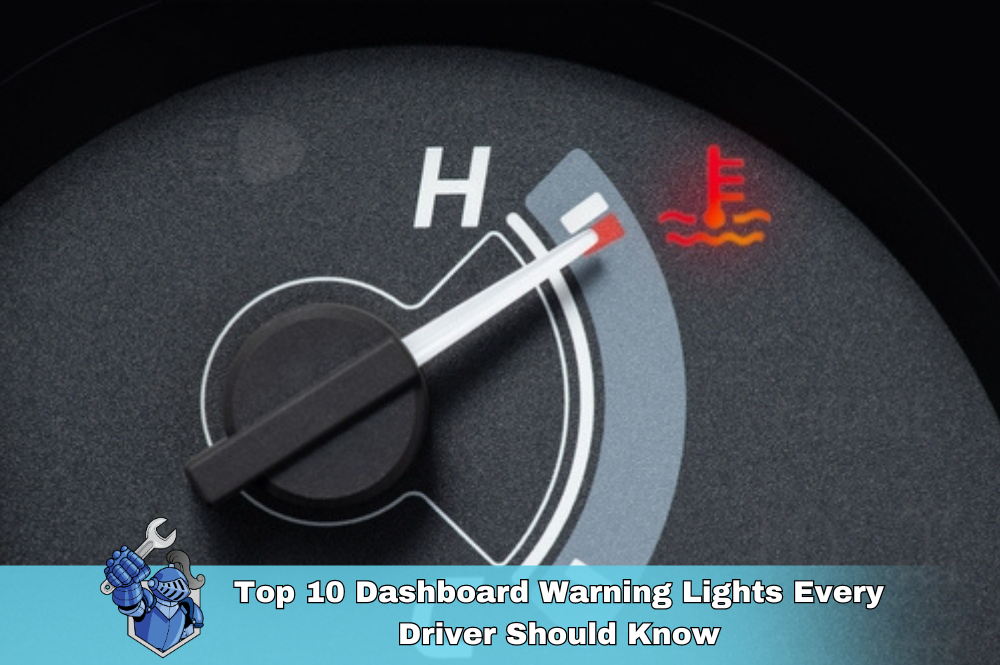 Top 10 Dashboard Warning Lights Every Driver Should Know
Top 10 Dashboard Warning Lights Every Driver Should Know